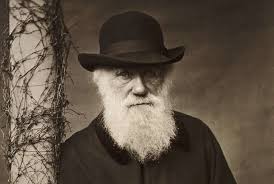Long Fatigue: The exhaustion that lingers after an infection
Catagory:Education
Author:
Posted Date:11/20/2024
Posted By:utopia online
Before Long Covid there was post-viral fatigue – a mysterious set of illnesses caused by other infections. Now scientists are starting to unravel their secrets.
Since an acute infection with Covid-19 in the summer of 2023, Rachael Edwards has been battling a fatigue so crippling that it has left her bedridden for weeks at a time. A previously healthy 31-year-old marketing manager living in Amsterdam, she describes feeling like she is "weighted down by an anchor".
"Long Covid fatigue differs from the exhaustion of parenting newborns or long days at the office in a number of ways," says Edwards. "Imagine you've completed the hardest marathon of your life with poor sleep and no fuel. Then after the adrenaline has worn off, try walking up a flight of 100 stairs. That is how my body feels. My muscles won't move. I can't even hold my hand above my head," she says.
With the Covid-19 pandemic came long Covid, the lingering symptoms after an infection with the virus has cleared. Now it is long Covid which has opened a new window into the study of post-viral fatigue – a similar illness of persistent exhaustion which some people experience after recovering from other kinds of infection.
Post-viral fatigue has long been poorly understood, and for many years was often dismissed as psychological. But this long-term fatigue with varying degrees of severity has been linked to infections ranging from Sars to Ebola, Epstein-Barr virus and influenza, as well as infections with tick-borne pathogens such as the bacteria Borrelia burgdorferi, which causes Lyme disease.An enigmatic issue
As a GP based in Aberdeen, Scotland, Rosalind Adam is familiar with seeing patients suffering from problematic fatigue. But over time, she has been increasingly struck by the generic nature of the term, and how we use this single phrase to encompass everything from everyday weariness to crippling energy deficits which leave people housebound and unable to work.
"I don't think we should think of fatigue as a single entity and I'd like to understand whether different patterns of fatigue respond differently to different approaches," says Adam.As an academic researcher at the University of Aberdeen, Adam has launched a study of 40 people suffering from varying forms of problematic fatigue, from long Covid patients to those with heart failure or cancer. For the research, they were given digital sensors to track a variety of physical parameters from breathing rate to body temperature, sleep quality, heart activity and activity levels, along with an app to rate their physical and mental fatigue throughout the day.
The aim is to use AI to identify patterns in the data which might represent what Adam calls "fatiguotypes" – distinct traits which could be used to categorise subtypes of fatigue more accurately. She hopes that the findings could ultimately lead to more tailored clinical trials for fatigue, and potentially pave the way for new medicines.A daily challenge
This kind of physiological shutdown is intrinsic to PEM where patients like Edwards find themselves locked into a state in which the tiniest overexertion can result in a crash which lasts for months and sometimes even years. Putrino believes that there are at least 10 different plausible explanations for why people develop PEM, which range from sleep disruption to hormonal impairments and inflammation of the lining of blood vessels. But at the heart of many of these theories are tubular, energy-creating structures called mitochondria which can be found in every single one of our cells.
When viruses invade our cells, they hijack mitochondria and leach some of the energy which is being generated for our benefit and use it to help them replicate and pump more virus through the body. "Now you have a cell that is working way over capacity to produce energy for both viral replication as well as the general functions it needs to perform," says Putrino.
According to Putrino, this means that while we're trying to recover from an infection, the body is also coping with what he calls an "energy debt", having been generating twice the customary amount of energy during the infection phase. One of the theories for why Sars-CoV-2 and other viruses can lead to PEM is because small amounts of virus can persist in parts of the body. As such, returning to normal activities before the body has recovered from its energy debt can causes a crash, during which time the virus can flare up or reactivate dormant viruses and induce further mitochondrial damage.
In other cases, the muscle weakness and physical impairments which many people with severe post-viral fatigue and PEM describe, are thought to be due to the initial infection inducing a state of autoimmunity, changing the behaviour of immune cells and triggering them to attack the very nerve fibres which enable muscles to contract. In Ebola disease survivors, severe autoimmunity has been shown to be connected to the symptoms of prolonged fatigue which many experience, while similar processes were also linked to the chronic fatigue and disability experienced by survivors of the Sars outbreak in the early 2000s.Viral infections may trigger long-term and persistent impairment in one's immune system," says Avik Roy, chief scientific officer at the non-profit Simmaron Research, which conducts research into the treatment of neuroimmune diseases. "Autoimmune responses due to the altered behaviour of immune cells such as T lymphocytes, natural killer cells and macrophages may cause damage in the myelin layer of peripheral nerves, resulting in muscle weakness and fatigue."A third idea which Putrino and others have been studying, is related to impaired waste clearance. Working overtime means that mitochondria generate a lot of oxidative stress, yet the body is unable to adequately clear up after itself, because the immune system is in a state of prolonged exhaustion after battling the virus. This in itself may contribute to physical symptoms such as brain fog and muscle fatigue, impacting the ability to move and function normally. One study even showed that long Covid patients have an accumulation of toxic waste products in their muscle fibres.
Because of all this, an approach known as "pacing", by which patients attempt to slowly work their way back to normal levels of physical activity by progressively pushing themselves to do more and more, does not always work. In some Lyme disease, ME/CFS and long Covid patients, their underlying dysfunction means that pacing can actually make them worse.
"Long Covid patients need to achieve some improvement in functional status by virtue of medication before embarking on any form of graded exercise," says David Systrom, a pulmonologist at Brigham & Women's Hospital.A possible solution
Over several decades of studying people with ME/CFS, Keller has heard the phrase "mitochondrial dysfunction" cited repeatedly as a possible cause of their prolonged fatigue. However, she says the key question is what is causing the mitochondria to be impaired.
In some cases of post-viral fatigue stemming from Ebola, Zika and influenza viruses, research has suggested that the cause is direct viral damage to mitochondria DNA. Studies delving into possible mechanisms have found that viral invasion can inhibit the production of phosphocreatine, a crucial chemical in the energy creation process. But there are other cases where mitochondria may simply be suffering from a lack of oxygen.
Sars-CoV-2 and other viruses appear to be capable of driving the formation of micro-clots, tiny particles which move through blood vessels entrapping various proteins and impairing oxygen flow, while in other cases, viral damage can affect normal heart rate, respiratory function and blood flow.
If the mitochondria can't get enough oxygen to function normally, Keller says that the body shifts to anaerobic energy production, a means of generating energy which is usually only required for short, intense bursts of activity such as sprinting at high speed. "When this shift towards anaerobic energy production occurs prematurely during low-level exertion, even simple activities of daily living will result in fatigue," says Keller.At Mount Sinai, Putrino is now leading a clinical trial looking at whether an enzyme called lumbrokinase, which breaks down fibrin, a protein which is thought to be at the core of micro-clots, can help improve mitochondrial function and energy levels in long Covid and ME/CFS patients.This is just one of an entire range of possible solutions being explored. In long Covid patients where viral persistence or reactivated viruses seem to be behind PEM, Putrino is exploring whether various repurposed HIV medications can help restore these infections to a dormant form. Simmaron Research along with the Mayo Clinic and the Center for Chronic Diseases, have launched a clinical trial of low-dose rapamycin in people with ME/CFS to see whether it can improve mitochondrial function and quality of life by stimulating a key bodily process called autophagy, encouraging cells to remove and recycle damaged components. "So far, the trial has produced very promising initial results," says Roy.
This wealth of research is also identifying supplements which may help people with less severe forms of post-viral fatigue recover more quickly in the wake of an infection. Coenzyme Q10, a compound used by mitochondria to generate energy which has been found to be depleted in ME/CFS patients, is now available over the counter in the US and the UK – it's regulated as a dietary supplement – and has been shown in some studies to reduce fatigue.
Keller says that this research is also helping to identify subgroups of people who seem to be more at risk of post-viral fatigue. She believes that people who already have underlying muscle or nerve tension due to lifestyle habits, chronic injuries or surgeries could be more vulnerable because these underlying factors will already be inhibiting oxygen delivery around the body."We've found that tension from frequent or prolonged sitting, or in the muscles of the neck, chest and shoulders due to excessive screen time, surfing on cell phones and low strength and endurance of the core muscles that support correct spinal alignment may be a contributing factor," she says. "Injuries or surgeries that cause scarring of the connective tissue such as C-section or breast reduction, may also contribute to this tension."
Putrino says it is vital that we get better at identifying the precise factors which can cause people to end up in a state of prolonged fatigue, as this will enable the development of better diagnostics and ultimately more targeted treatments aimed at various subgroups of individuals.
"There are many drivers, and it's naive to think that a single drug or a single intervention will address everything," Putrino says. "But as long as we're methodical in investigating potential target drugs, and understanding why they don't work in different people, then we stand a chance of getting more sophisticated combination drug trials within the next 12 to 24 months. That could lead to some real hope for people living with these infection-associated chronic conditions," he says.


.jpg)














 👁 :
👁 :
 👁 :
👁 :
 👁 :1
👁 :1
 👁 :54
👁 :54
 👁 :
👁 :
 👁 :
👁 :
 👁 :226
👁 :226
 👁 :146
👁 :146